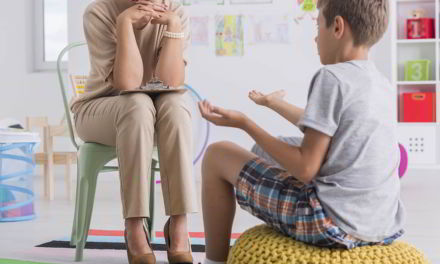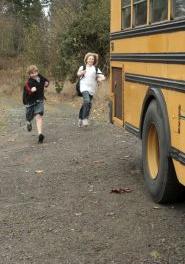Children who have been exposed to trauma or Adverse Childhood Experiences (ACEs) may exhibit certain behaviours or refuse to attend education. How can we overcome their barriers and what can we implement to support them?
 EDClass spoke to Danny Wolstencroft, from Lads Like Us, who are safeguarding consultants going across the UK to discuss trauma-informed care to all types of professionals. Their goal is to inform professionals on how to effectively support children and adults who have experienced trauma and what strategies we can implement to overcome barriers.
EDClass spoke to Danny Wolstencroft, from Lads Like Us, who are safeguarding consultants going across the UK to discuss trauma-informed care to all types of professionals. Their goal is to inform professionals on how to effectively support children and adults who have experienced trauma and what strategies we can implement to overcome barriers.
Danny is a survivor himself after experiencing abuse when he was younger and became involved in drugs, which ultimately, led to his imprisonment. He is now striving to improve the experiences and outcomes for all who experience trauma. Danny said:
“From a young age, there should have been an early intervention done with me and someone should have used professional curiosity and looked at my behaviour. Instead of labelling me, they could have asked how things were going or what was happening in my life, and nobody ever thought of those questions.”
Get to the core root of trauma
Trauma, in particular ACEs, can occur due to incidents such as physical or sexual abuse or exposure to domestic violence just to name a few examples. You must find whatever the child has gone through so you can implement the right support possible. Danny stated:
“We’re not professionals, but we’re delivering from our side of the desk. We change our delivery depending on who we speak to and there are loads of different facets to it. From our experience, we’ve found that professionals are frightened to get to the core root of trauma.
We want anyone who comes in contact with someone who has experienced trauma to get them up to speed and show them what trauma-informed practices are and how to exercise professional curiosity safely. By being curious and asking questions, professionals are acting in a trauma-informed way and using professional curiosity. When they do this, they’re saving lives.”
By building rapport and meaningful relationships children may feel more inclined to open up regarding their experiences. Once this happens, strategies can be formulated to help overcome any barriers that might be preventing them from simply attending education.
A good way is to provide safe spaces and peer support groups that can allow children to communicate with one another. They may not fully grasp their trauma yet, but it can allow them to describe how they are thinking and feeling. Danny added:
“We’re trying to undo a lot of what young people are reading online that is negative. We need to realise that kids sometimes aren’t being vulgar towards anyone, it’s just how they express themselves. We cannot silence children, we need to let them speak. A lot of children just want peer support and a space to talk as it makes them feel privileged, confident, and builds self-esteem.”
The importance of safeguarding in every aspect
Safeguarding should be paramount when supporting a child. When they are attending an educational setting, every measure should be taken to accommodate their needs. But, what about when a child refuses to attend school? How can we ensure they are safe? Danny said:
“Young people need to be more self-aware and need to understand ACEs and the impact they can have.
Online safety is massive. It’s a dangerous zone as children feel more comfortable online, especially after COVID, but we need to ensure they are properly socialised. Children can be quite vulnerable and susceptible to people taking advantage of them. It’s about helping young people empower themselves.”
Ensuring children are secure wherever they are learning is essential. Ultimately, everyone has the responsibility to safeguard a child and do the best possible so that better experiences and outcomes in education can be provided. As stated in Keeping Children Safe in Education 2023:
“Safeguarding and promoting the welfare of children is everyone’s responsibility. Everyone who comes into contact with children and their families has a role to play. In order to fulfil this responsibility effectively, all practitioners should make sure their approach is child centred. This means that they should consider, at all times, what is in the best interests of the child.”
Online learning balance
Online learning has displayed some immense benefits, especially for those who have experienced trauma. It poses the question as to whether an online alternative provision could truly support someone who has experienced trauma. Danny stated:
“Online can provide some amazing benefits, but, I don’t think it can all be online. It has to be the hybrid model, and meeting face-to-face in some instances, ultimately, it’s about human connection.
Young people can feel more comfortable online and maybe it’s a good tool to build up trust and engage with someone who has experienced trauma. We’re still trying to break out of the aftermath of COVID and it’s good to get people interacting again. So, I think a mixture of the two is good.”
When using an online provision safeguarding should be of paramount importance. This means that students need to be visible at all times to ensure they are learning and nothing is happening in their working environment that could cause them harm or distress. It’s also important that there are stringent safeguarding protocols in place if an emergency was to occur. This can enable students to learn safely and regain their confidence.
If you’d like to learn about what an effective online alternative provision can offer visit EDClass. You can also call 01909 568338, send an email to mail@edclass.com or enquire for more information here.










